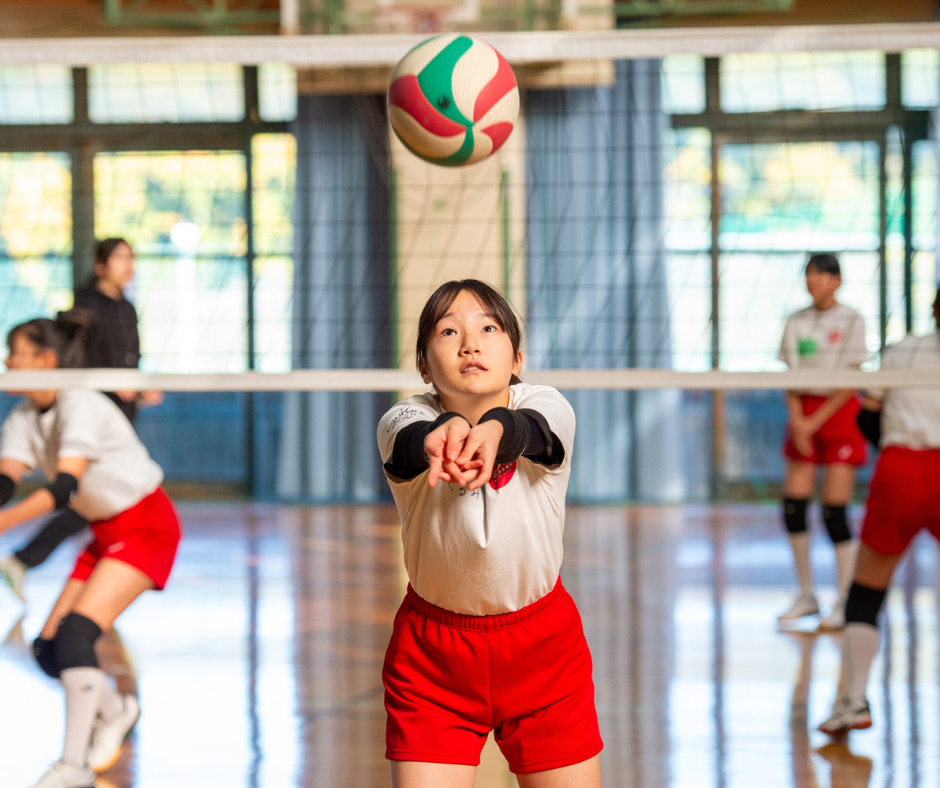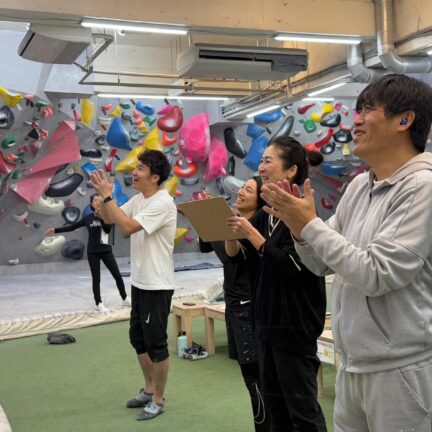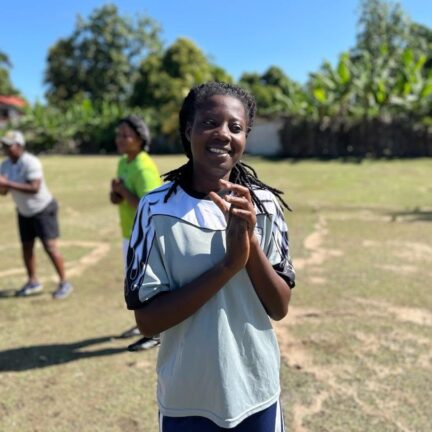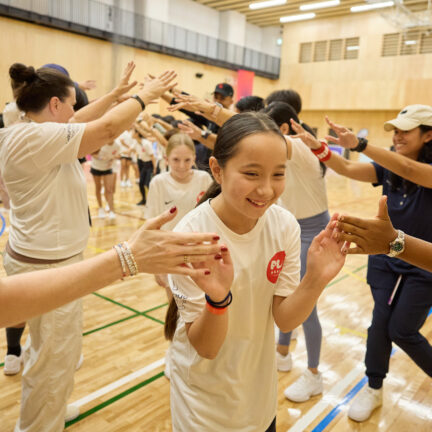Many children in Japan get their first introduction to sports via their school extracurricular activities (school sports clubs).
But that would put pressure on the teachers overseeing the clubs because they had to work beyond their regular school curriculum. It would lead to teacher burn out, negative experiences for the participants and eventually kids dropping out of sports.
It’s become a dire issue in Japan that the country’s Ministry of Education, Culture, Sports, Science and Technology (MEXT) wishes to address it through different reforms. But one university in Osaka, Japan – Momoyama Gakuin University of Education (Momokyo) which was established by Incorporated Educational Institution Momoyama Gakuin – has taken a unique approach to improve the situation in their communities.
With grant support from Play Academy with Naomi Osaka in early 2023, Momokyo launched the “Girls Power Program: Leadership Development.” Play Academy is an initiative with Naomi Osaka, Laureus Sport for Good and Nike, Inc., to change girls’ lives through play and sport, starting in Tokyo and recently expanded to Osaka. Its aims align with Momokyo’s community sport program that is designed by their teachers and students to deliver sport activities for kids in their communities. The program simultaneously develops the skills of Momokyo’s student coaches who go to the local school sports clubs and support the teachers running the sports sessions.
The first year of Momokyo’s Girls Power Program started with four coaches receiving preliminary training from March 2023 before being dispatched from May to local junior high schools that the university collaborates with. The preliminary trainings focused on four themes:
- Women’s sports and health – discussions centered around understanding the physiological changes during adolescence – with emphasis on the menstrual cycle and overall health, including their mental well-being
- Safeguarding – coaches recognized the importance of organizational efforts to protect everyone’s right to participate in sports safely
- Women empowerment in sports – students acknowledged Japan’s low rate of women’s social advancement compared to other countries and the importance of “male coaches to consider and act on behalf of the female,” says Taien Taninaka
- Club building – coaches explored how to address various issues within the club while encouraging the athletes’ autonomy.
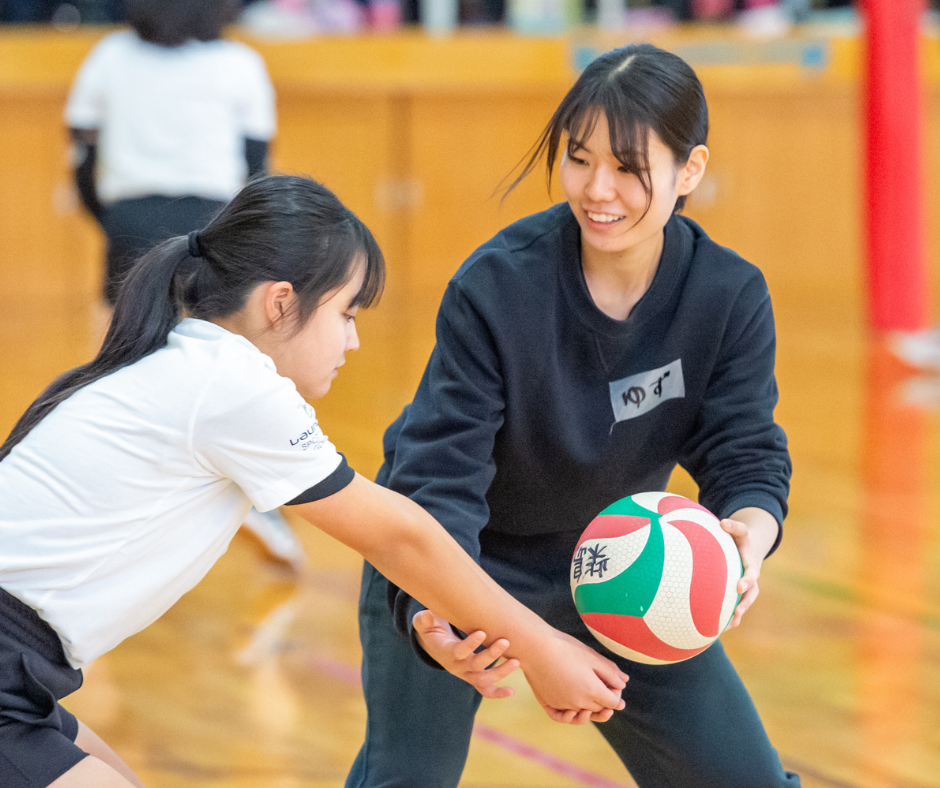
After completing these trainings, the four student coaches were dispatched to their weekly visits to their respective junior high schools that had girls volleyball, girls basketball and boys soccer clubs. The coaches would build relationships and trust with the club and athletes, and held meetings with the school teachers who oversee the clubs before and after the sports sessions to discuss the club’s current situation and directions.
“We set up an environment where the athletes make decisions of their own club activities, and through repeated trial and error, they independently and voluntarily carry out the activities and own their club.”
She further explained that “the core of club building is where both the athletes and the coaches use trial and error to improve the club together.”
“There may be discrepancies between what the coaches want to do and what the instructor (junior high school teachers) want to do. So we often use observation to figure it out,” Murai said.
“But I hope to incorporate the difference of sending a female coach to a boys’ club team. I think there are things you might not notice by looking only at girls, but you may notice when you have boys to compare with.”
